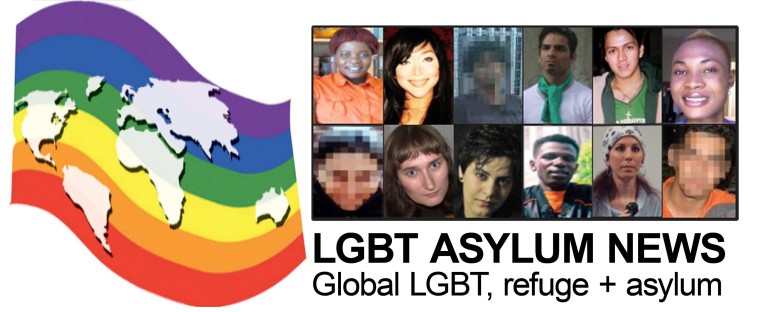 |
| Image via Wikipedia |
By Dale Smith
The Canadian Council of Refugees (CCR) is worried proposed government changes to Canada’s refugee regulations could mean refugees who have been persecuted for being gay will not be allowed to apply.
Janet Dench, executive director of CCR, says the new rules would mean gay claimants and other marginalized refugees would be excluded or face much bigger hurdles.
The Department of Citizenship and Immigration (CIC) recently published the proposed changes in the Canada Gazette. The changes would limit refugees sponsored under the groups of five (G5s) and community sponsors (CS) categories.
Refugees entering under the G5 category are sponsored by five or more Canadian citizens or permanent residents who act as guarantors for the claimant. Meanwhile, community sponsors include both for-profit and non-profit organizations willing to sponsor refugees and provide funds for them after they are in Canada.
The government would instead bring in refugees recognized by either the United Nations High Commission for Refugees (UNHCR) or a state.
This follows a move to cap the number of refugees brought into the country by sponsorship agreement holders (SAHs). These are usually religious, cultural or humanitarian groups that have signed multiyear agreements with the ministry in order to be able to sponsor refugees more than once.
The government instead pledged to bring in more government-assisted refugees solely from the UNHCR list.
“Certain groups of people would be excluded,” says Dench. “In quite a lot of countries in Africa, it’s not the UNHCR that does the recognition but the state – but if that state does not recognize applications from refugees on the basis of sexual orientation, which is not by any means universally applied, then that would mean that the G5s couldn’t respond to them.”At the moment, G5s annually sponsor approximately 40 percent of all refugees, and SAHs sponsor around 60 percent, with community sponsors submitting a handful every year.
Dench says a great strength of the private sponsorship program is that it has allowed Canadians to respond to refugees who are otherwise ignored, discounted or marginalized.
“Every time you try to build up a new requirement, there are new categories of refugees who will continue to be marginalized, and Canadians won’t be able to respond to them,” she says.In the proposal, Sarita Bhatla, director general of CIC’s refugees branch, argues that the changes, along with giving the department the authority to return applications that are not filled out to the department’s satisfaction, will tackle wait times for private sponsorship of refugees.
“The amendments are expected to increase program efficiency as a whole and improve the volume and quality of applications,” Bhatla writes. “The anticipated higher approval rates for G5/CS applications will make it easier for CIC to predict and manage the number of applications received each year from private sponsors relative to the annual levels tabled in Parliament.”The proposal states that government-sponsored refugees under the UNHCR process have a 90-percent approval rating, while private sponsorship between 2006 and 2010 averaged 57 percent.
Dench says giving the department the ability to return incomplete applications will present a new barrier to smaller groups trying to sponsor refugees.
“It just puts all the burden on the hands of the sponsors to figure out how to make it work and to make sure that they’ve answered all of the questions that need to be answered in the right sort of way,” she explains, noting that previously an immigration officer would help applicants and explain confusing sections of the application.
The application process is complicated, says Dench, and it requires a range of documents that vary depending on which country the applicant comes from.
“How are you as a G5 going to know if the refugee that you want to sponsor has got document A?” Dench asks. “How do you know if document A meets the requirements? It’s not clear how easy it is for people to know.”Concerns have also been expressed about the use of visa offices to process applications for UNCHR-recognized refugees. Local citizens staff many foreign offices.
“Who gets to decide which applications will be forwarded . . . this is where homophobia is going to raise its ugly head, because people who are working in the Canadian visa office are not separate from their own culture,” says Chris Morrissey, of the Rainbow Refugee Committee. “Even though the guidelines from Canada on sexual orientation and gender identity are covered, there is always that concern individuals have – will this person be fair? Will there be homophobia? Will they be rejected? All of that stuff comes into play, if it comes out of a visa office.”Moreover, because UNHCR-recognized refugees must leave their country of origin in order to apply for recognition and eventual resettlement, Morrissey says there are additional challenges for lesbians fleeing persecution.
“There are so many barriers for lesbians in terms of permission [to leave the country, often required from their fathers], in terms of education, in terms of being able to survive in any way outside of sex trade work,” Morrissey says. “For them it’s much more difficult.”Morrissey says Rainbow Refugee’s work with queer refugees will not be affected – it works with sponsorship agreement holders, and these groups are not bound to sponsor only UNHCR refugees. Its terms with the government mean those refugees it sponsors will not be applied to the SAH’s caps.
“The problem is we have to work with an SAH, and the SAHs know that they’ve got a cap, and the SAHs don’t quite trust that our applications won’t be counted as part of their applications,” Morrissey says.
Canadian Council for Refugees: Comments on notice of intent – changes to the Private Sponsorship of Refugee...








 Join our page
Join our page


0 comments:
Post a Comment